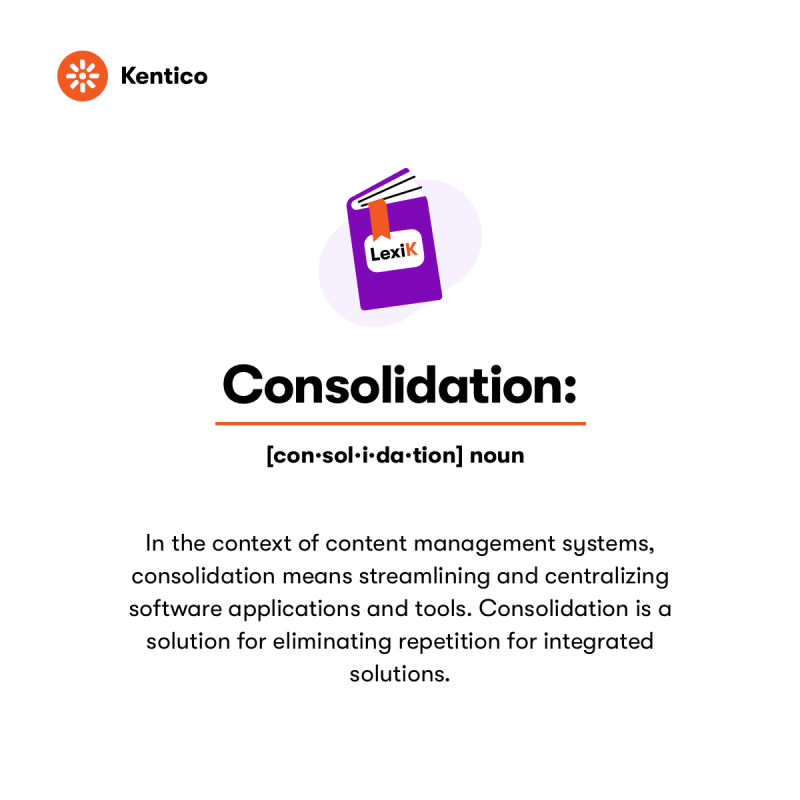The future of content marketing is here—think AI-driven tools, immersive experiences, and hyper-personalization. Ready to stay ahead of the curve in content marketing trends? Let’s dive into the future of content marketing and explore the top strategies shaping the digital landscape in 2025.
1. AI transforms content creation
AI is already reshaping content creation in remarkable ways, and it will only become more prevalent in 2025. Tools like the ever-evolving Gemini 2.0, ChatGPT, and Copy.ai are revolutionizing the landscape, enabling creators to produce high-quality content at scale—faster, smarter, and more strategically than ever.
Another exciting advancement is AI knowledgebase chatbots—assistants powered by an internal knowledge base that ensure the information shared is accurate, up to date, and fully under the control of the business or vendor.
That said, the human touch will remain essential for maintaining authenticity and connection. While AI handles the heavy lifting, it’s up to people to infuse brand voice and heart into every piece.
Check out our AI Copywriter’s Handbook for tips on how to leverage this powerful creative ally.
2. Interactive and immersive media
Interactive and immersive content is changing how audiences engage, turning passive scrolls into active experiences. Interactivity is becoming key to retaining attention, with quizzes, polls, and calculators making content both engaging and valuable.
Augmented Reality (AR) and Virtual Reality (VR) will be at the forefront of creating rich, interactive experiences in 2025. Customers will be able to virtually try on products or visualize how items will look in their home. The ability to connect on this emotional level with audiences via memorable, interactive experiences is critical, and AR/VR tools are here to stay.
3. Centralized content management
In 2025, content marketing strategies are evolving, and consolidation will be the go-to approach for brands looking to streamline their multichannel efforts. They are moving away from tool overload and choosing unified platforms that allow all content—text, images, and videos—to live in a single hub. This centralization ensures more consistent content across various digital channels and simplifies the managing of digital assets. It also enables AI to provide comprehensive (rather than partial) insights on content performance.

No more tool-hopping, misplaced files, or inefficient workflows. With a single content hub, brands can create, manage, and reuse content across touchpoints, maximizing ROI and reducing time-to-market.
Learn more about the benefits of consolidating your tech stack with our ebook: Consolidation Unlocked
4. Smarter marketing automation
A core component of successful content marketing in 2025, marketing automation is evolving beyond simply scheduling emails and social posts. Instead, it is being integrated with AI to design and optimize workflows, increase efficiency, and drive meaningful engagement. From personalizing content experiences to dynamically adjusting campaigns based on audience interaction, automation is crucial for any marketer looking to stay agile in 2025.

“In a world with so much noise, it's essential to plan for multiple ways to communicate your brand's message. The old “Rule of 7” is alive and well, and buyers of all industries need to be told things multiple times. Marketing automation serves as the glue that holds the funnel together and connects all of those impressions, engagements, and conversions together.”
5. Hyper-personalization is focus
Personalization isn’t optional; it’s an integral part of content marketing for 2025. A staggering 80% of consumers prefer brands that cater to their unique preferences, and this year it’s all about being able to do this at scale.
Expect digital marketing strategies to focus on personalized email campaigns, website experiences that read the user’s mind, and ecommerce platforms that recommend what consumers want before they know it.

“Hyper-personalization isn’t just the next step in marketing—it’s the expectation. In 2025, every consumer interaction will feel like a conversation tailored just for them, transforming customer loyalty from a goal into a natural outcome.”
6. Short form content dominates
Short-form and snackable content will continue to dominate this year in content marketing strategies, driven by the ongoing shift toward mobile-first consumption. With attention spans shrinking and audiences demanding quick bites of engaging content, formats like Instagram Reels, YouTube Shorts, and emerging alternatives to TikTok will remain staples for brands. Even as TikTok faces potential challenges in the U.S., the appetite for short-form video content will persist, pushing brands to adapt and explore new platforms while leveraging this powerful format.
Digital marketing trends in 2025 will reflect this need, with brands creating impactful, quick content pieces to captivate attention immediately. As mobile-first behaviors solidify, short-form content will be essential for brands looking to maintain relevance.
7. Real-time data-driven insights
Data-driven decision-making will only get stronger as a trend in 2025. Brands are leveraging advanced AI and machine learning tools to transform vast amounts of data into real-time insights, enabling marketers to optimize campaigns dynamically. With a unified platform, brands can analyze consumer behaviors, improve personalization at scale, and predict future trends—leading to smarter content marketing strategies.
With actionable data insights powering strategy, content will be even more aligned with customer expectations.
8. Ethical, inclusive content matters
Ethical content will not just be a buzzword in 2025; it will be a priority. Transparency and inclusivity will be paramount, as consumers demand accountability when it comes to data usage and accessibility. AI may provide the backbone for much of the content creation, but it will need to be responsible. Mitigating biases, ensuring fairness, and building trust with audiences through transparent data use will be crucial elements in digital marketing strategies for 2025.
Inclusivity, from ADA compliance to thoughtful design choices, will be woven into every content marketing strategy to build deeper connections with underserved and diverse audiences.
9. Sustainable content strategies
As more consumers seek brands that reflect their values, content marketing in 2025 will see a rise in sustainability-driven campaigns. It’s not just about green products; it’s about creating meaningful content that stands the test of time while minimizing its environmental impact. Sustainable content marketing extends beyond just waste reduction to focus on long-term value, digital-first distribution, and even carbon-neutral platforms.
Sustainability-focused messaging will become a core aspect of content marketing, aligning brands with eco-conscious consumers and positioning them as responsible, forward-thinking companies.
10. User-generated content (UGC) rules
User-generated content (UGC) will reign supreme in 2025 content marketing strategies. With authenticity and relatability becoming key drivers of trust, UGC allows brands to tap into real customer experiences while reducing content production costs. Whether it's a viral video or a glowing product review, UGC provides content that resonates with a wider audience.
Expect UGC to become one of the most important contributors to brand loyalty and a vital part of every content strategy this year.
How is Kentico ready for content marketers in 2025?
As we approach 2025, Xperience by Kentico is fully equipped to help marketers streamline workflows with a unified platform that consolidates all content management and digital marketing tools into one, central hub. This makes content management easier and enables seamless content reuse across all touchpoints.
With AI-driven tools like AIRA, Xperience empowers marketers to create high-quality content at scale, while integrated marketing automation ensures timely, relevant messaging to target audiences.
But while you’re busy making the most of our platform in 2025, we’re already looking ahead to the future. Here’s a sneak peek at some of the exciting innovations we’re rolling out throughout the year to support the next chapter in the evolution of content marketing:
AIRA Unified: Streamline your workflow by ingesting content from all your applications and devices, connecting everything to the tools you use daily.
Customer journeys & AI-powered insights: Supercharged personalization with AI-driven, visual insights, helping marketers craft meaningful experiences at scale.
Email builder: Craft dynamic, tailored email campaigns like a pro, with intuitive tools designed to boost engagement.
Native commerce: Unlock powerful commerce tools directly within the platform, making it easier to drive seamless, integrated shopping experiences.
One-click AI-generated microsites: Launch entire microsites for your campaigns with a single click, perfect for high-impact promotions without needing a full-site overhaul.
Curious about how we’re shaping the future of content marketing? Take a closer look at our roadmap and explore our exciting 2025 innovations.
We’re building the tools for tomorrow—so you can focus on making it happen today.

Get tips for making sure your content's copy is keeping up with the trends this year. Our free ebook, Crafting compelling copy, offers proven strategies for success to boost your next marketing campaign.

